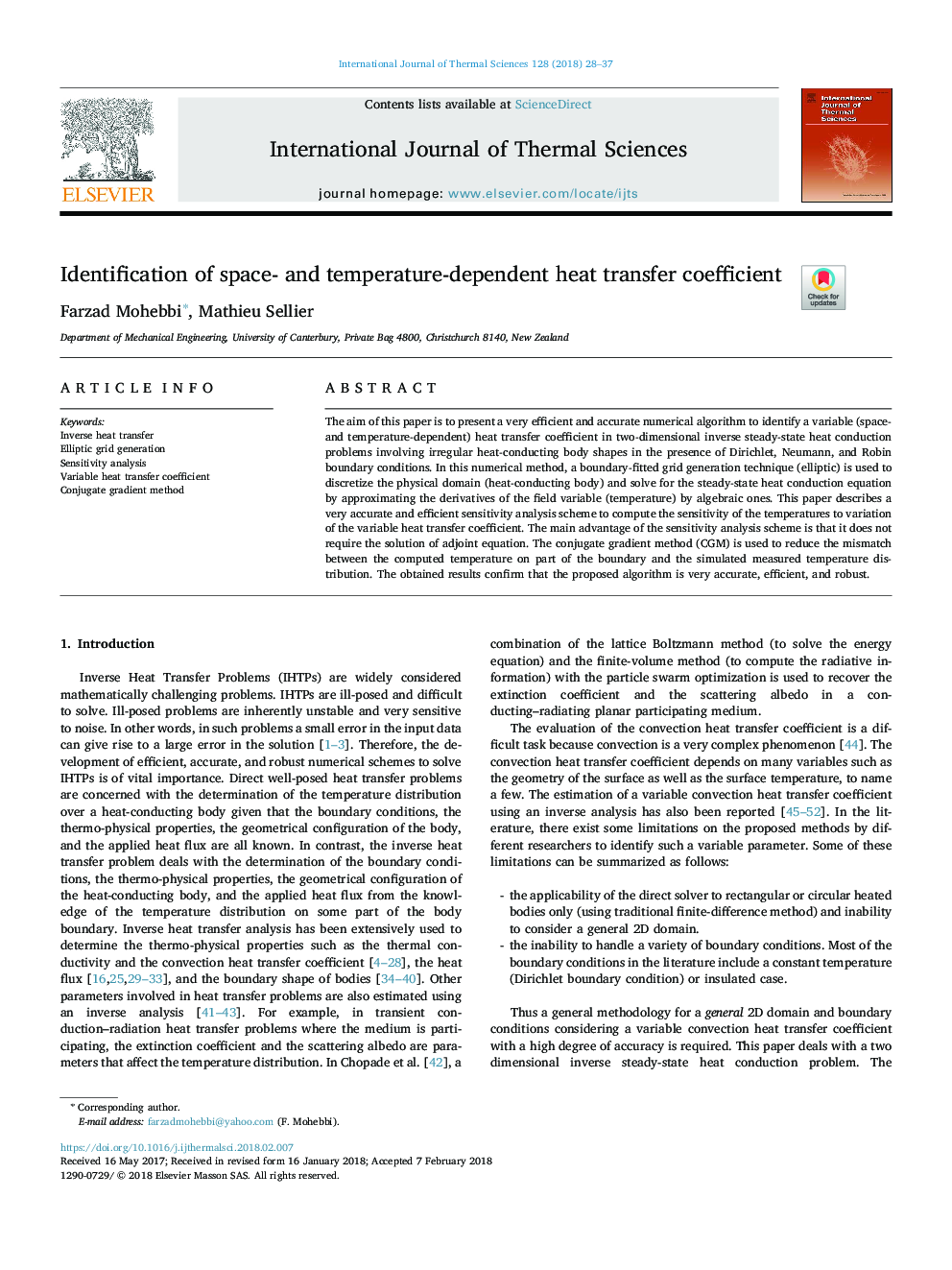| Article ID | Journal | Published Year | Pages | File Type |
|---|---|---|---|---|
| 7060712 | International Journal of Thermal Sciences | 2018 | 10 Pages |
Abstract
The aim of this paper is to present a very efficient and accurate numerical algorithm to identify a variable (space- and temperature-dependent) heat transfer coefficient in two-dimensional inverse steady-state heat conduction problems involving irregular heat-conducting body shapes in the presence of Dirichlet, Neumann, and Robin boundary conditions. In this numerical method, a boundary-fitted grid generation technique (elliptic) is used to discretize the physical domain (heat-conducting body) and solve for the steady-state heat conduction equation by approximating the derivatives of the field variable (temperature) by algebraic ones. This paper describes a very accurate and efficient sensitivity analysis scheme to compute the sensitivity of the temperatures to variation of the variable heat transfer coefficient. The main advantage of the sensitivity analysis scheme is that it does not require the solution of adjoint equation. The conjugate gradient method (CGM) is used to reduce the mismatch between the computed temperature on part of the boundary and the simulated measured temperature distribution. The obtained results confirm that the proposed algorithm is very accurate, efficient, and robust.
Related Topics
Physical Sciences and Engineering
Chemical Engineering
Fluid Flow and Transfer Processes
Authors
Farzad Mohebbi, Mathieu Sellier,
